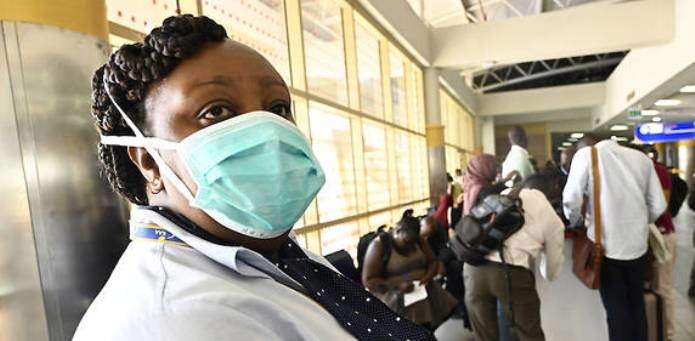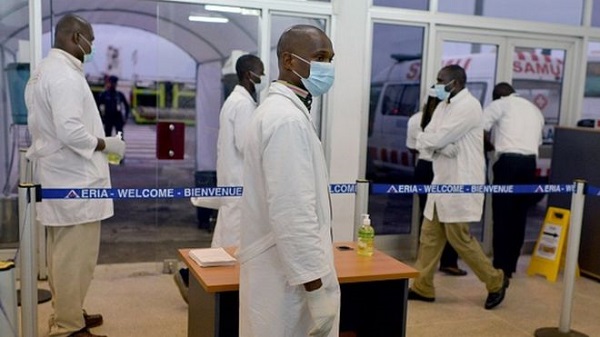
What we have also observed is that some Gambians are generally cynical as people. There is this feeling that the government cannot handle the coronavirus pandemic.
Given the endemic incompetence, corruption, and indifference in our public institutions, we cannot blame the government and the public health authorities for not having faith in the system to prevent a virulent pathogen.
If the Gambia government cannot contain extrajudicial killings of diabetic, cancer, high blood pressure, and malaria — ironically, the name of another deadly pathogen called coronavirus — is it the more complicated that the government can handle?
The onus is on the government and the department of health to be aware of the cynicism, reassure the Gambian people, and continue to engage with them in both social and traditional media through vigorous advocacy and sensitisation of the pandemic nature of the coronavirus in vernacular language.
We are probably more conversant with coronavirus pandemic that has not infected — much less killed — any Gambian in the Gambia and in abroad.
However, we are more likely to see the coronavirus on the front pages of the global media and as an item of the discussion by the global citizens, compared to any other epidemic in the Gambia.
Nevertheless, looking at the Gambia through the lens of the body of the pathogen, the coronavirus pandemic, we would say it has exposed, yet again, our tendency to pay less attention to tackling the very diseases that regularly kill our people. Every day, cancer, fever, cholera, and malaria kill poor and hapless Gambians — those who cannot afford to go to neighbouring Senegal or apply for a visa, much less buy a flight ticket to Asia, Europe, and North America for medical tourism.
However, they do not get the media coverage and severe policy intervention that they deserve. We hardly heard of any National Assembly member raise an issue of “urgent national importance” over diabetic, cholera, cancer, and malaria fever. Let us hope that the coronavirus pandemic situation will open our eyes to the oft-ignored dire picture around our health care system.
As usual, there are terrible human beings out there, full of mischief and evil, doing everything to concoct and distribute fake news, to spread panic and to cause a commotion. People need to note that information as crucial as the deadly pathogen, the coronavirus, and its consequences; we need to take necessary precautions.

“Healthy and safe wishes to all.” Some people hide under the guise of helping the public. Even the devil is disguised as an angel of light. This is nothing but mischief, rebroadcast by willing tools who never bother to verify anything in their lives!
As we confront this new common enemy in coronavirus, we ALL have a role to play to help contain it. The first thing is to accept that it is a threat to all of us — no matter the tongue, party, and religion. If the only thing we can do is stop rebroadcasting fake news, that would be lovely.
It would even be better if we can begin to question, verify, clarify, and counter the fake messages being broadcast under the guise of “is it true?” Verifying and countering them would be an excellent contribution to containing the mischief.
However, the Gambia seems quite unimpressed about the coronavirus disease even as it spreads alarmingly through China, with more than 80,000 people being infected and the number of fatalities climbing upwards. The World Health Organization has declared the outbreak a pandemic and Public Health Emergency of International Concern.
Moreover, the Gambia, with all its vulnerabilities, could be a prime candidate for a disaster, and we are not well prepared. Are the Gambia’s existing quarantine practices up to date?
The worst may yet not come to pass. No reported case of infection, all involving a Chinese who have been tested negative; other travelers have been sent home after hospital isolation ended in negative tests.
The Gambia have not evacuated students and traders from Wuhan, who are in a quarantine facility, where no one had tested positive for the virus. Some Gambian people were reported to be under observation at isolation wards across the country.
The number of confirmed cases in China, however, has mercifully not gone up. What arrangements are being made to bring Gambian citizens trapped in countries with a high incidence of coronavirus, such as Italy home as other countries have done for those in China?
The government has sprung into action and instituted health measures at airports and land borders of neighbouring Senegal, including entry screening, travel advisories, and signages, with checks of any travellers showing signs of cold or fever.
Nevertheless, infected persons could still slip through in the asymptomatic yet infectious phase of the illness. One sees very few staff or passengers sporting masks at the borders to Senegal, which has confirmed cases of coronavirus. If a carrier enters any city and mingles with people, the potential for the virus spreading rapidly remains high. In the Gambia, especially in Greater Banjul, with the highest population densities, it is impossible to maintain the WHO-recommended three-feet distance between individuals.
There is no airport or land border in the world where they test for coronavirus at the entry point. The basic test is to take your body temperature, which could be indicative of several illnesses. That your temperature is above average does not automatically mean you have coronavirus. It could be a common cold, malaria, or maybe you are heavily indebted.
All over the world, the standard protocol is self-reporting if you think you have been in contact with someone who has the virus. If you are coming from an endemic zone, you can be quarantined or advised to self-quarantine, depending on the adopted procedure.
The incubation period for the virus is 14 days, but some cases have shown that it is safer to observe the potential carrier for 28 days. It is only when some symptoms begin to manifest that a test for the coronavirus will be carried out. If you are positive, you fill a form for contact tracing. The notion that anybody can be diagnosed with coronavirus at the airport when you are not showing any symptoms is not based on science.
Anyone in close contact with an infected person would need clinical assessment and restricted mobility till the two-week period, within which the virus incubates, is over.
However, there is no doubt that we would never be able to replicate China’s draconian measures to control the coronavirus pandemic. The ongoing lockdown of the coronavirus pandemic would be inconceivable in any Gambian village.
There are worries about how well the Gambia is equipped to conduct disease surveillance, deploy adequate laboratory testing capacity, elevate hospital preparedness, including infection prevention and control, and communicate effectively to the public. Hospitals are overcrowded and overburdened with little scope for a sudden influx of highly contagious patients. Public awareness is minimal, and no precautionary guidelines have yet been issued to the public by the Gambian authorities, in English, or vernacular languages.
There is no comprehensive nationwide surveillance system in place. Lab testing facilities are few and far between though facilities were expanded since the HIV/ AIDS and Ebola also the swine flu threat arose years ago, samples from the Gambia are being sent to a virology lab in neighbouring Senegal which remains the only one in the Gambia capable of testing for coronavirus. These are also not all linked to the public health response system.
A severe virus epidemic would have a catastrophic impact on the country. Gambians have been lucky so far that there are cases so far to be manageable. The official response has been encouraging, and we must all play our part as well to make sure we avert or contain the virus from the spread.
We have been very impressed with the optics. This needs to be sustained, especially in terms of regular updates, preparedness, sensitization, and coordination.
Above all, if we suspect we are infected. Coronavirus is NOT a death sentence. We are genuinely impressed with public-spirited and responsible Gambians who have been working round the clock to counter the mischief. Evil must not overcome good. We can only pray that it stays that way.
By Alagi Yorro Jallow











Recent Comments